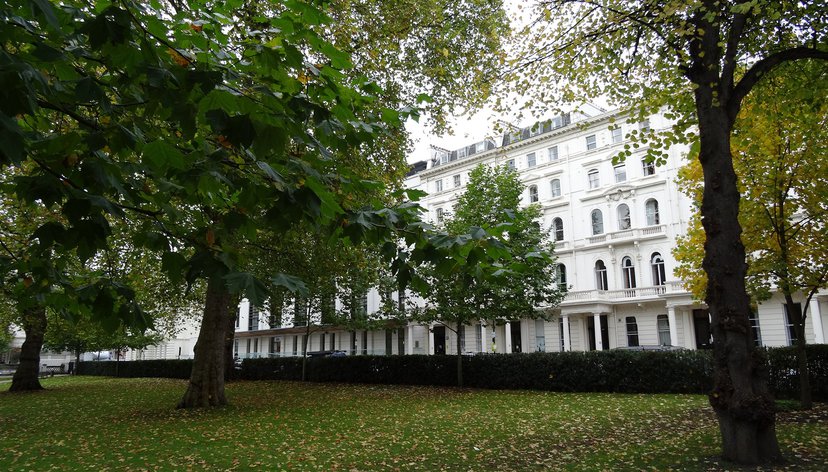Disability support
Jump to
Information about funding for disabled students, and how and why you might choose to inform the College about your disability.
The RCA is committed to celebrating diversity and supporting and helping all of its students to reach their full potential. Comprehensive support exists for students with disabilities, and we encourage disabled students who will be studying at the College to contact us at the earliest opportunity to discuss their requirements.
We can also offer assistance to students applying for Disabled Students' Allowance (DSA) – for more information on eligibility and how to apply please visit the Gov UK website.
Disability advice
The Disability Adviser can offer confidential advice to enable you to make informed decisions about support opportunities that might assist you during your time at the RCA. When we refer to the term disability we also include long-term medical or mental health conditions including eating disorders and specific learning difficulties such as dyslexia and dyspraxia.
The Dyslexia Coordinator provides academic support for dyslexic and dyspraxic students. This includes: screening tests; strategy workshop sessions; individual tutorial help with dissertations for students who do not receive the Disabled Students Allowance; study skills and time management. See further information about dyslexia support at the RCA.
Occupational Health Services for the College are now provided by Imperial College’s Occupational Health Service at their South Kensington Campus.
Disabled Students' Allowance (DSA)
Disabled Students' Allowances (DSAs) are paid by Student Finance England to UK (and some EU) postgraduate students who can show that they have a disability, medical condition or specific learning difficulty which affects their ability to study. (If you are unsure whether your disability, medical condition or learning difference qualifies for the DSA, please ask Student Support).
Further information about DSA
What is DSA?
DSA is funding for extra costs you may incur in attending your course as a direct result of your disability.
For full-time and part-time postgraduate students, there is an allowance of up to £25,575, which can cover specific specialist equipment, study skills support, travel and other course-related costs.
The amount of DSA you receive will depend on a Needs Assessment (see below).
Who is eligible?
You can apply if you attend a recognised taught or research postgraduate course and meet the eligibility criteria. Broadly speaking, you need to be a UK national, but some EU nationals also qualify. The Student Adviser for Disability and Wellbeing can give you advice about your eligibility.
All the programmes offered at the Royal College of Art are recognised programmes.
Previous support
If you had DSA funding during your undergraduate course, you should still be eligible to apply for DSA now that you are at the Royal College of Art. However, Student Finance England will take into consideration any specialist equipment that you received from DSA recently.
Application process
If you are living in England you should apply to Student Finance England. If you live in Wales, Scotland or Northern Ireland you should apply to the funding body for the country that you are in. Contact details are given at the bottom of this page.
You must complete the DSA1 'full form' application. You can get a form from Student Support.
You need to provide recent evidence of your disability, long-term health condition or specific learning difficulty. For example, a doctor's letter or a dyslexia report.
If you bring your completed application and evidence to the Student Support Office, we can send it on your behalf.
Needs assessment
If you are eligible for DSA, you will then be referred for a Needs Assessment. This will determine the exact help you need to help you with your course. The Needs Assessment will be carried out by a specialist at an assessment centre.
The Needs Assessment will recommend the sort of equipment and other support you need, how much it costs and where you can get it from. It will also identify any training you might need, to make best use of the equipment recommended.
When should I apply?
The whole DSA process can take some time so it is a good idea to apply at the earliest opportunity. If you accept an offer of a place at the Royal College of Art and think that you will be eligible to apply for a DSA, then you can do so any time from the April before you start.
Can I keep my equipment after I graduate?
All equipment bought for you with the DSA is your property. You can keep this equipment after you graduate.
What happens if I leave my programme early?
Student Finance England may recover some or all of your DSA if you leave your programme. They should only ask you to return money you have received for support that you have not yet bought or used.
Informing the College of a Disability
Under the the Equality Act (2010), a person is considered disabled if they have a physical or mental impairment that has a substantial (more than minor or trivial) and long-term (lasting or likely to last 12 months or more) adverse effect on their ability to carry out normal day-to-day activities.
You are encouraged to declare a disability as soon as possible, preferably before you start your programme, so that we can understand any difficulties and work with you to explore suitable support strategies.
What counts as a disability?
Student Support can assist with access to study for students who have, for example:
- a long-term mental health condition such as anxiety, depression or an eating disorder
- a sensory impairment
- a social communication difficulty such as Asperger Syndrome or autism
- a mobility impairment
- a specific learning difficulty such as dyslexia or dyspraxia
Should I disclose?
The main reason for letting the College know about your disability is to allow for adjustments to be made and support to be put in place to ensure that you can fully participate in your course and life at the RCA.
If we have accurate data on how many students have a disability we can use this to make sure that adequate resources are designated to disability support.
How to inform the College of a disability
If you have declared a disability in your application, the Student Support Office will contact you before you start your course to ask for more information. We will also ask you whether you would like us to inform your department of your disability and any adjustments you might require. If you would like to have an informal discussion about the support available to you during your studies please contact a member of the team.
If you have a disability which you didn't declare in your application, have recently become disabled or have just been diagnosed, you can inform the College by contacting Student Support.
What happens once I have informed the College?
Any information that you disclose to the College about a disability will be treated as confidential. The information will be recorded on your student record and will be passed to your department if you request this.
Information for DSA Needs Assessors
Course length
From September 2022 all MA courses at the RCA will be one year, rather than two, excluding Architecture, Global Innovation Design, and Innovation Design Engineering.
Band 4 non-medical helpers
One-to-one specialist mentoring
- Preferred supplier for mental health /AS mentoring: University Mentoring Organisation (UMO)
UMO at £61.99 plus VAT per hour. QAG registration: 64WC1TJEMB.
[email protected]
umo.london - Second choice supplier: BITT at £66 plus VAT per hour – QAG registration AOQ1MRASW1
One-to-one specialist study skills
Kensington-based students
Students based at Kensington – Dyslexia Teaching Centre at £63 per hour
dyslexiateachingcentre.co.uk
T: 075 9221 2375
Battersea-based students
Students based at Battersea – Diversity and Ability at £60 per hour
diversityandability.com
T: 020 7582 6117
Course location 2024/25 - Kensington campus:
Jay Mews, Kensington Gore, London SW7 2UE
- Architecture
- Curating Contemporary Art
- Fashion
- Interior Design
- MRes RCA: Architecture Pathway
- MRes RCA: Communication Design Pathway
- MRes RCA: Design Pathway
- MRes RCA: Healthcare Design Pathway
- MRes RCA: Humanities Design Pathway
- Service Design
- Textiles
Course location 2024/25 - Battersea campus:
Hester Road, London SW11 4AN / Howie Street, London SW11 4AY
- Contemporary Art Practice
- Ceramics & Glass
- Design Products
- Innovation Design Engineering
- Intelligent Mobility
- Jewellery & Metal
- MRes RCA: Fine Art Pathway
- Painting
- Photography
- Sculpture
Course location 2024/25 - White City campus:
Garden House, Dorando Close, London W12 7FN
- Animation
- Curating Contemporary Art
- Digital Direction
- V&A/ RCA History of Design
- Information Experience Design
- Visual Communication
- Writing
For any further information please contact Tom Fisher, Disability Adviser
[email protected]
Detailed Access Guides to RCA Buildings
The Royal College of Art has worked with AccessAble to create Detailed Access Guides to teaching, meeting spaces and routes across it’s Kensington, Battersea, and White City campuses.
The Guides are 100% facts, figures, and photographs to help students, visitors and staff plan their journey to and around the College, covering everything from parking facilities and assistive listening, to walking distances and accessible toilets.
We know everyone’s accessibility needs are different, which is why having detailed, accurate information is so important. It’s why all of the details you’ll find in the Guide have been checked in person, on site, by trained surveyors.
View Detailed Access Guides for each RCA campus on the AccessAble website.
Contact us
Get in touch with the Disability Advisor in the Student Support team
[email protected]



